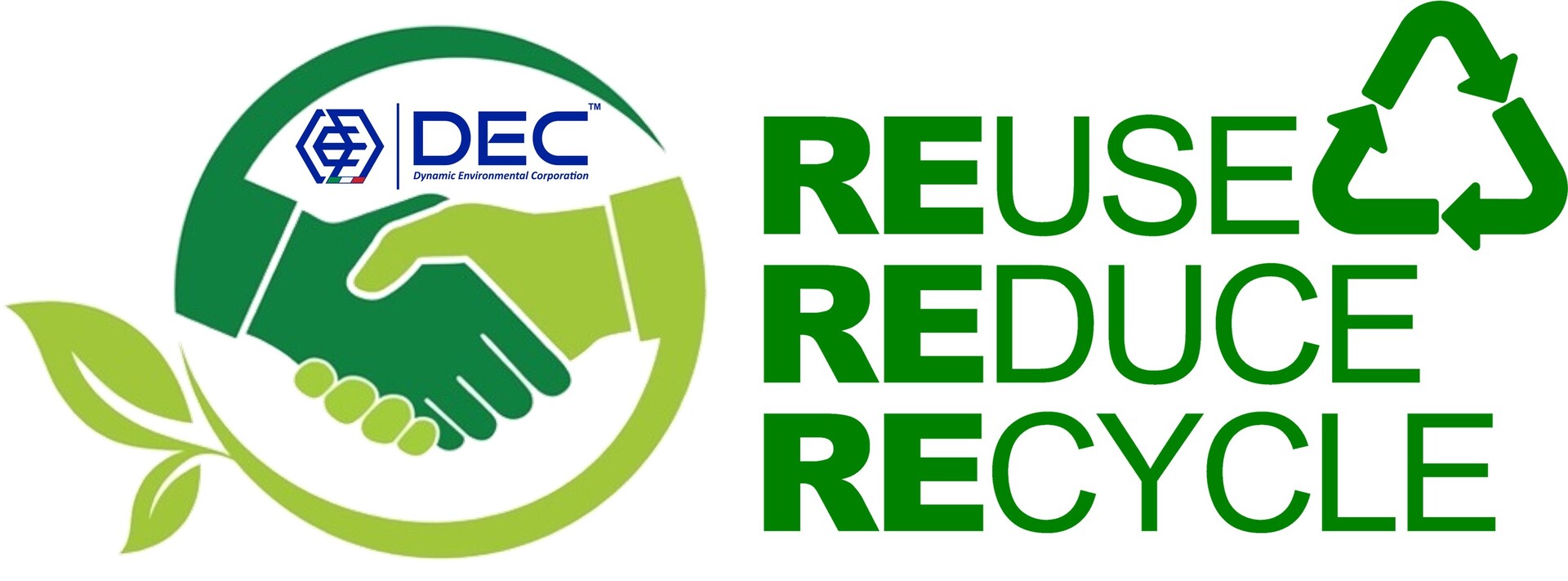
sustainable technologies & solutions
reuse, reduce, recycle | circular economy | decarbonization
DEC is improving the environment by developing sustainable processes and solutions for industrial applications. Sustainable development is fully integrated throughout DEC and is consistently adding value for our customers and our company. DEC employees are developing innovative technologies that create economic growth and social benefits while using fewer natural resources and less carbon. In doing so, we are helping our customers increase their productivity and reduce their environmental impact.

We are constantly focused on achieving our mission of making our planet more productive. Environmental and social responsibility is one of our company’s core values. But the meaning of sustainable development has broadened. We have gone beyond measuring inputs and outputs and have begun to measure outcomes, such as net benefits and lasting social, environmental and economic value creation. We are also focused on the entire value chain, including suppliers, customers and other external stakeholders such as government agencies and nongovernmental organizations.
Reuse, Reduce, Recycle • Sustainability
DEC leads the way in V.O.C. recovery solutions. Our unrivalled technical expertise and experience in solvent recovery systems (SRU) make us the world's leading contractor: no other entity has the same breadth and depth of experience or talented inert gas activated carbon solvent recovery engineering resource. This is reflected in our long-term alliances and service agreements with most of the industry's leading companies.

close the loop • circular economy
Population growth, urbanization and economic development are putting increasing pressure on a finite set of natural resources. Minimizing natural resource use and preserving biodiversity are imperative to ensuring the survival of the planet. These actions are also necessary for communities to continue to accept – and even welcome – the presence of businesses in their neighbourhoods. Since the industrial revolution, pollution and waste has constantly grown. What used to be regarded as 'waste', can be turned into a resource. The aim is to look beyond waste and to close the loop of the circular economy: all resources need to be managed more efficiently throughout their life cycle.

decarbonization
DECarbonization has emerged as a key strategy to combat climate change and reduce GHG emissions, through specific policies (e.g. EU Green Deal Industrial Plan, EU NZIA - Net-Zero Industry Act, US IRA - Inflation Reduction Act, etc.). Industries heavily reliant on solvents for various processes, such as pharmaceuticals, chemicals, flexible packaging and coatings, often release substantial amounts of volatile organic compounds (VOCs) into the atmosphere. These VOC emissions contribute to air pollution and climate change. DEC.SRU™ • solvent recovery units address this challenge by capturing and recycling VOCs, effectively reducing emissions and promoting decarbonization in industrial operations.
DECarbonization is the process of reducing or eliminating carbon dioxide (CO2) emissions: carbon dioxide is a greenhouse gas (GHG) that contributes to climate change: by decarbonizing, DEC sustainable processes and technologies can help to mitigate climate change and protect the environment.
Additional info
For a comprehensive overview of DEC's sustainability practices, visit the following resources:
DEC | Sustainable Development Strategy
DEC | Corporate Social Responsibility
DEC | UN • Global Compact Principles

